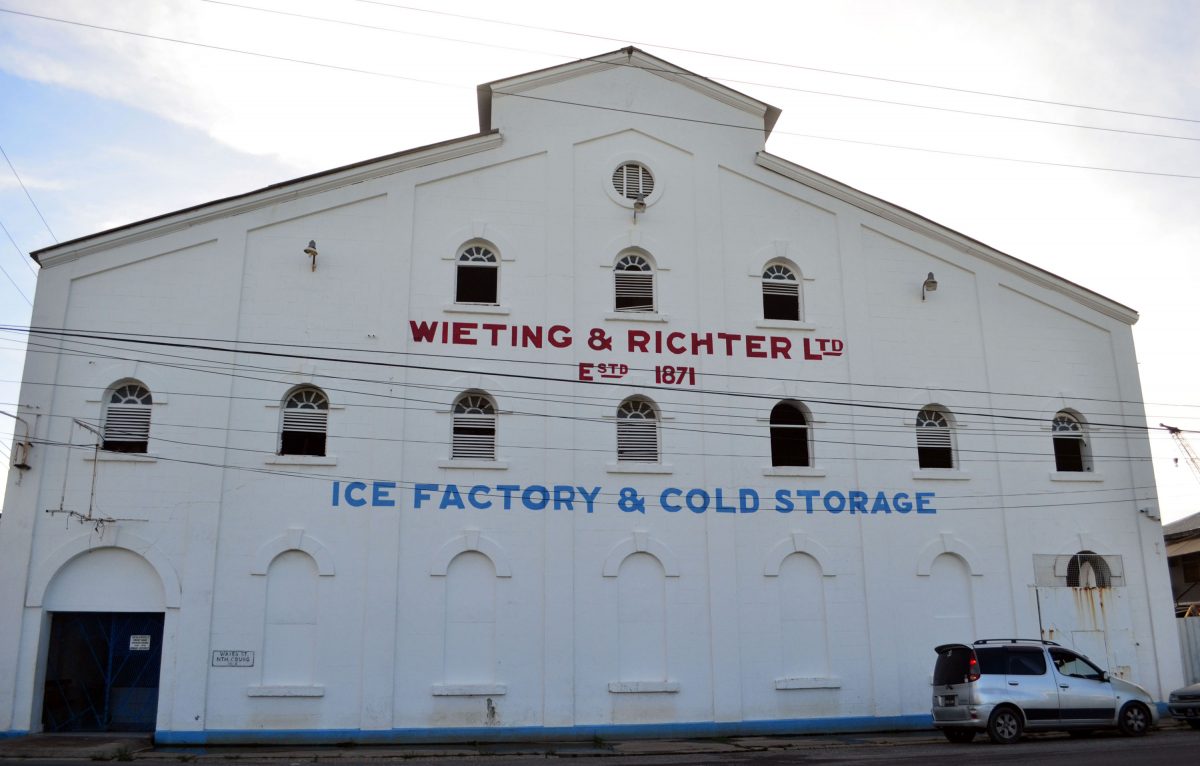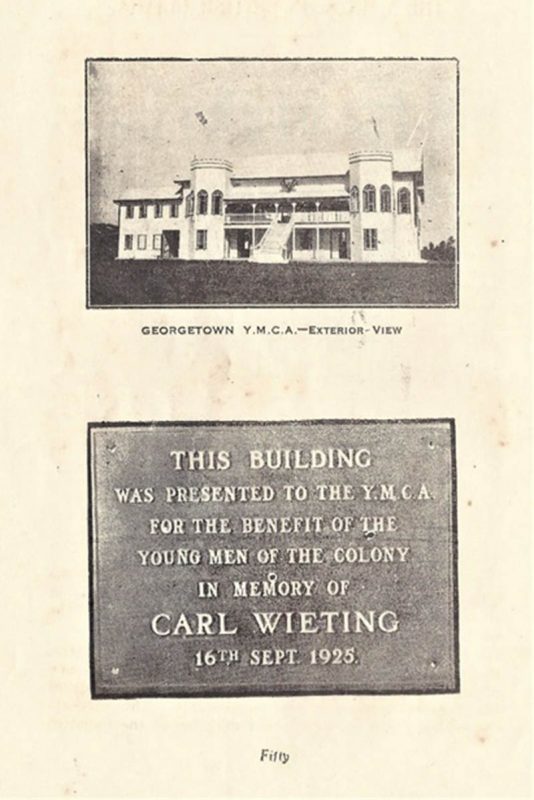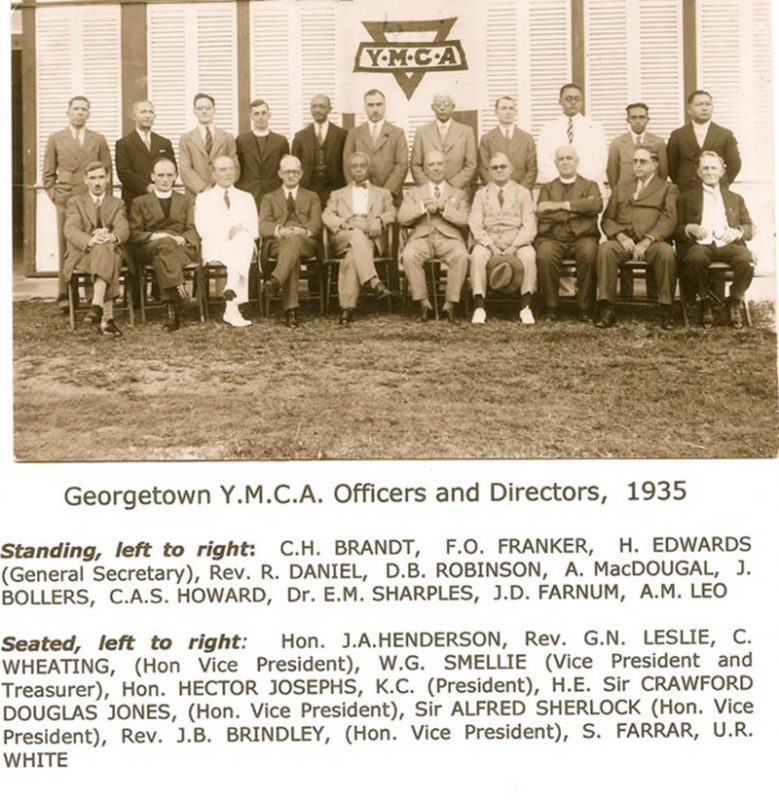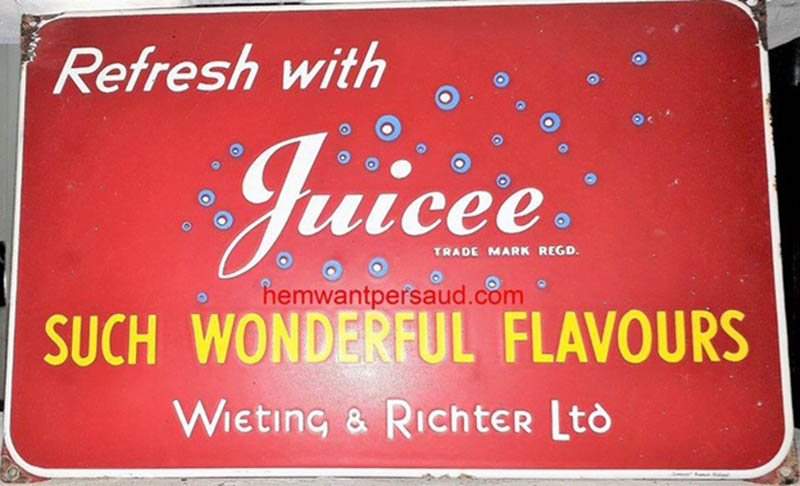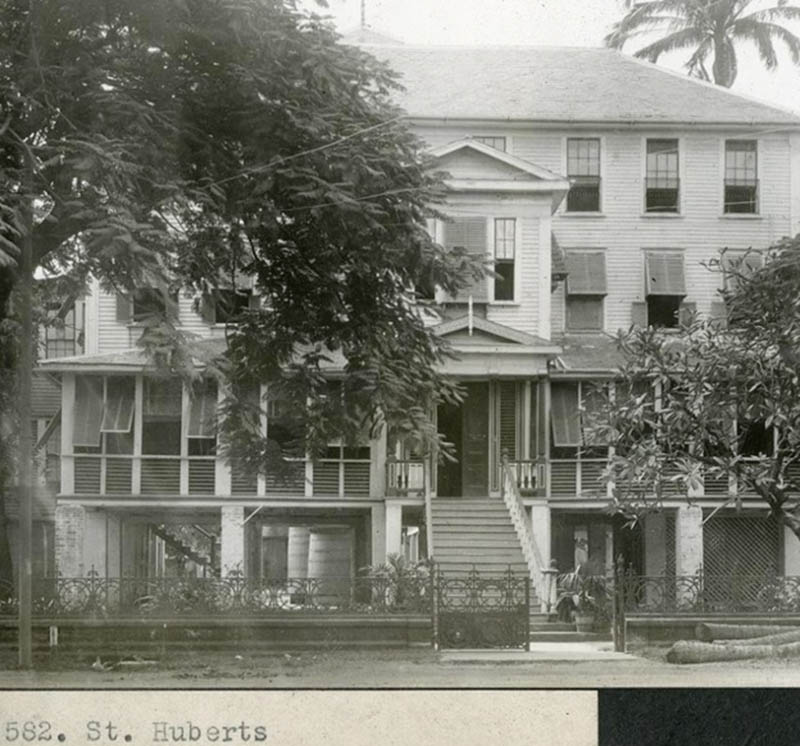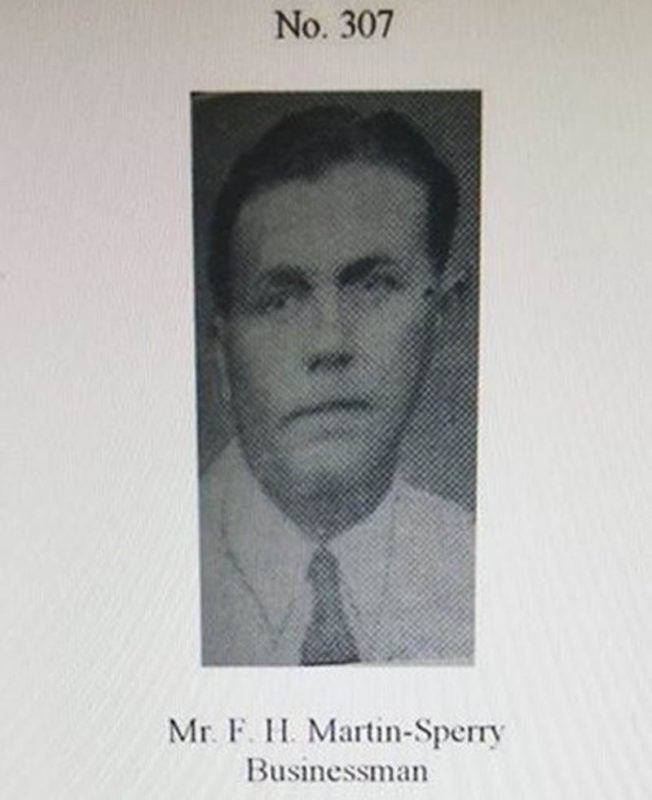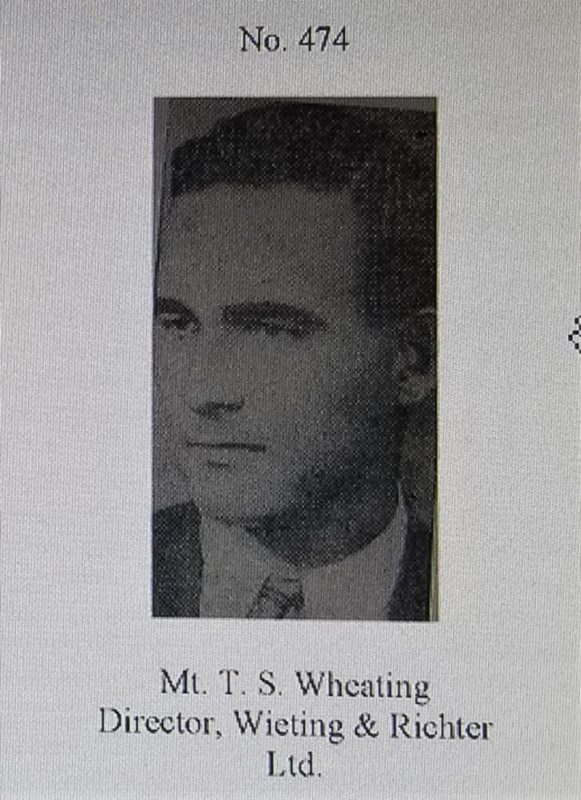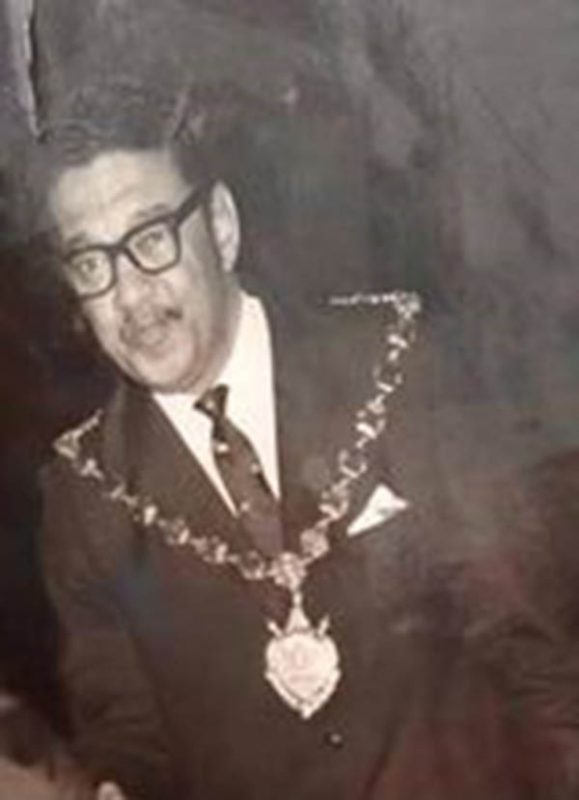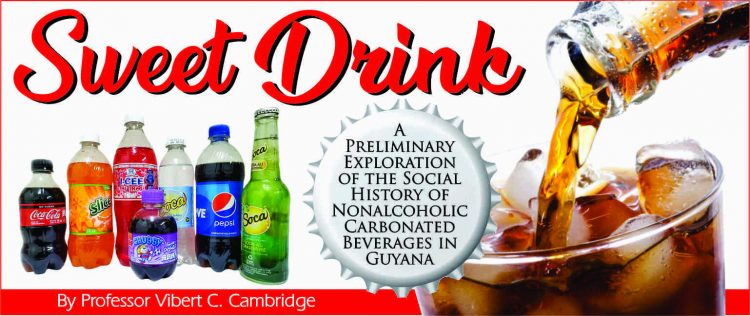
Carl Wieting [Sr.]
At the time of writing, there were few details on Carl Wieting’s early years. There is evidence to conclude that he was born in Prussia in 1843. He died in British Guiana in October 1919 at the age of 76. In his obituary in the Louisiana Planter and Sugar Manufacturers, he was described as “a distinguished citizen, a man of ability and enterprise, [who was admired for] the energy with which he carried out his ideas and successfully developed them during his long career in British Guiana.” His first wife, Christina, had predeceased him. She was 34 when she died in 1888. A plaque in the crypt in St. George’s Cathedral memorializes Wieting for his “many years as Warden of [the] Cathedral.” Also memorialized on the plaque is Martha, his second wife, who predeceased him in 1918.
Carl Wieting [Jr.], later Carl Wheating, the son of Carl Wieting, was born in 1876. He became the managing director of the company, which was also influential in the mechanization of British Guiana’s rice industry during the late 19th and early 20th centuries. A plaque in the YMCA building in Thomas Lands, Georgetown, states that the building “was presented to the YMCA for the benefit of the Young Men of the Colony in Memory of Carl Wieting [Sr.] on 16th Sept. 1925.” In 1935, Carl Wheating was the Honorary Vice President of the Georgetown YMCA. By that time, given the prevailing anti-German sentiment, the family name was Anglicized from Wieting to Wheating.
Gustav Henri Richter
As is the case with Wieting, little is known about the early life of Gustav Henri Richter. His obituary, also in the Louisiana Planter and Sugar Manufacturer, stated that he died suddenly on September 24, 1909, at the age of 67. He was born in Prussia in 1842 and had served in the Prussian army prior to migrating to the United States during the America Civil War (1861–1865). There he joined the well-known Baltimore-based sugar importing company Messrs. A. W. Perot & Co.
In 1864, Richter was sent to British Guiana to represent the company, which was “among the largest importers” of Demerara crystals, a favorite sugar throughout the United States. A. W. Perot might have had close ties to Demerara. In his History of the Guyanese Working People, Walter Rodney mentions that Perot lived in British Guiana during the 1850s and was well connected with the plantocracy, which controlled the colony’s political and financial life. Evidence suggests that A.W. Perot had plantation interests in British Guiana. In addition, he was a U.S. vice consul during his sojourn in the colony.
Increased taxation on sugar imported into the United States and heightened demand for refined white sugar led to reduced demand for the British Guiana product. In 1871, Richter joined Wieting “to organize the firm Wieting and Richter.” As previously mentioned, the company established an ice-making plant and an aerated-water bottling factory. During World War II, the company was the Coca-Cola franchisee in British Guiana. It was also known for the Juicee and Star sweet-drink brands, and by 1960, it had acquired the franchise to bottle 7Up. Joy Ford Austin recalls, “My dad, John M. Ford, worked at Wieting and Richter in those days, and I remember when the company got the franchise in late 50s or early 60s. Was quite a coup!”
Available records indicate that Richter had three children: Cecil, Maude, and Arthur. The “Marriage Register” of the December 11, 1911, London Times announced the marriage of Cecil Richter and Cecile Irene Hodgson, the only child of Sir Frederick and Lady Hodgson, in London. Sir Frederick Hodgson was the governor of British Guiana between 1904 and 1911.
Clearly, the Richters were members of the colony’s ruling class. This status would have been valuable for garnering soft-drink franchises in the early days of franchise capitalism.
Consuls
By the second half of the 19th century, many successful European businessmen in Georgetown had served as consuls for various European states. It seems that Prussia had maintained an interest in British Guiana since the time of Schomburgk. From about 1865, A.W. Perot and, later, Wieting & Richter executives served as consuls for Prussia and, subsequently, Germany. An example is Arthur von Weber, a merchant trader with A. W. Perot in Demerara. In 1866, at age 26, “he was commissioned by the King of Prussia to be Consul at Demerara.” Between 1867 and 1894, he represented various German political formations. Bernard Abraham made the following observations in 2018:
“In my BG directories the first German (Prussian) consul appears in 1865, one Wilkins, partner in A.W. Perot. It was the same in 1866, but from 1867 through to 1894 the consul was Arthur Weber, also a partner in A. W. Perot (1867 for Prussia, 1870 to 1875 for the North German Confederation, 1877 for Germany, 1878 to 1894 for the German Empire). In 1898, Gustav Richter is listed as acting Consul for the German Empire and his residence is Colonna House (now St. Joseph’s Mercy Hospital), Parade Street, Kingston, Georgetown.”
Arthur von Weber’s residence was the stunning St. Hubert’s, located at 35-36 Main & Bentick Streets. Wayne McWatt, an active researcher of Guyana’s architectural heritage, recently described the building as follows:
“St Hubert’s is a huge curiosity in the context of Guyana Building heritage – its sheer size and grandeur puts it a category of a ‘mansion house’ – whether it was built to demonstrate private family wealth and status or served some other formal function – in later life it functioned as a Guest House. We do not know the name of architect/ builder that designed the house and its massive timber elevations. But in proportions and style and fenestration it is seemingly well presented with curb appeal. The persons who resided there also add to the heritage significance – Weber himself and the German Consulate; Bishop Swaby resided there for a year in 1893 while Austin House was being rebuilt; R.G. Humphry lived there in the 1940s.”
The mansions of Richter and von Weber reflected their status. In time other Wieting & Richter executives would serve as consuls for Germany and other European states.
After World War II, several Wieting and Richter directors held influential positions in British Guianese social, cultural, and political life. For example, F. Harold Martin-Sperry, the son of Gustav Henri and Emma Marie Richter, was prominent in Guianese cultural life, especially its musical life. He was born in 1888 and was educated in the United Kingdom and Germany. He also attended the Conservatoire de Musique in France. He was multilingual and served as an officer in the British Army during World War II.
As chairman of the British Guiana Festival of Music Committee, F. Harold Martin-Sperry, along with Lynette Dolphin, the Secretary, organized British Guiana’s inaugural Festival of Music (“Music Festival”) in 1953. The music festival advanced a comprehensive strategy for educating and training British Guiana’s musicians. This model was evident well into the first decade of independence. There is a conceptual relationship between the ideas that informed the British Guiana Festival of Music and the British colonial project. According to the theory of “aesthetic force,” “good music” would uplift the poor, energize minds, and “civilize” the savage.
Other Wieting & Richter executives who were also active in British Guiana and, later, Guyana’s social, cultural, and political life included Thomas “Tommy” Sherwood Wheating and John Ford. John Ford served as Lord Mayor of the City of Georgetown from 1970 to 1972. In early 1973, the Wieting & Richter bottling plant was relocated to the Ruimveldt Industrial Estate, East Bank Demerara. On December 31, 1975, the company stopped producing aerated beverages, and the plant and franchises were acquired by Banks DIH.
Wieting & Richter was a casualty of the tough economic times that Guyana experienced in the 1970s. The shortage of foreign currencies to pay for the inputs to make aerated drinks caused an industry-wide catastrophe. We will address this situation and its consequences in upcoming installments. Next week, we begin our exploration of the “Lemonade People” and other community-based bottlers.
REFERENCES
The Louisiana Planter and Sugar Manufacturers. Volume 14, No. 5, January 29, 1910, p. 74.
http://sites.rootsweb.com/~nyggbs/Argosy/1888ARGOSY.pdf
YMCA: 100 Years of Service.
Ballinger, R. A History of Sugar Marketing through 1974. Washington, D.C: U.S. Department of Agriculture/Economics, Statistics and Cooperative Services, 1978.
Schmitz. M. “The Transformation of the Southern Cane Sugar Sector: 1860 – 1930.” Agricultural History. Vol. 53, No. 1(Jan. 1979).
Rodney, W. A History of the Guyanese Working People, 1881 – 1905. Baltimore: Johns Hopkins Press, 1981, p. 125.
A review of the case of the United States vs. 712 bags of dark Demerara centrifugal sugars : A.W. Perot & Co., claimants : tried at the September term of the District Court of the U.S. for the District of Maryland A.W. Perot & Co
The Louisiana Planter and Sugar Manufacturer. Vol 43, No. 17, October 23, 1909, p. 258.
Caifone, A. Counter-Cola: A Multinational History of a Global Corporation. Oakland: University of California Press, 2019
Who is Who in British Guiana, 1945-1948. Available online at: https://books.google.com/books?id=QhKXCwAAQBAJ&pg=PA342&lpg=PA342&dq=F+Harold+Martin-Sperry,+Who+is+Who+in+British+Guiana,+1945-1948&source=bl&ots=GWjglmBPDa&sig=ACfU3U131SKrSc11f0CrXSIjfyULIYyS0g&hl=en&ppis=_e&sa=X&ved=2ahUKEwitwPue-tXnAhXTGs0KHReHB5YQ6AEwBnoECAoQAQ#v=onepage&q=F%20Harold%20Martin-Sperry%2C%20Who%20is%20Who%20in%20British%20Guiana%2C%201945-1948&f=false
Vibert C. Cambridge, V. Musical Life in Guyana: History and Politics of Controlling Creativity. Jackson: University Press of Mississippi, 2015.
